A big part of being successful in business is making sure that your potential customers can find you. This is where SEO comes in.
SEO stands for "search engine optimization," a process that can help improve your website's visibility online, which in turn helps you reach more customers and grow your business.
In this blog post, we'll discuss the basics of SEO and explain why it's so important for small and online businesses.
RELATED: Virtual Assistant Services: What Businesses Actually Need
Search Engine Optimization: What Is It, How Does It Work, and Why Is It Important?
You can click on these links below to jump to a specific topic:
What Is Search Engine Optimization?
If you've ever wondered how your favorite website ended up at the top of your search engine results, you can thank search engine optimization.
SEO is the process of improving the visibility and ranking of a website or web page in search engine results pages (SERPs). In other words, it's about getting your website to show up higher in the list of results when someone types in a relevant search term.
While there's no guaranteed way to achieve top search engine rankings, there are a number of things you can do to improve your chances. By optimizing your site, you can make it more visible and attractive to new customers. This can increase organic traffic and lead to more business.
How Do Search Engines Work?
Think of search engines as answer machines: you type in a question or search queries, and it gives you answers in the form of resources collected from all over the internet. These resources are collated using search engine algorithms that rank search results according to their relevant content.
Search engines work in three ways:
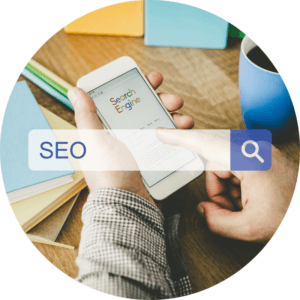
Crawling
This is the initial discovery process, where a search engine would send out “crawlers” or “spiders.” Search engine crawlers are software programs that visit websites and read their content. They typically visit websites more frequently if they see that the site is being updated regularly with new content.
Indexing
Indexing is the process of collecting and storing information about web pages.
When a search engine indexes a page, it looks at the page's content and creates a record of all the words on the page. This record is then used to help the search engine find relevant pages when someone searches for a specific term.
Ranking
When someone types in a query, search engines turn to their index of high-quality, relevant content. The content is then ordered as search results according to their relevance. The higher a search result is, the more relevant the search engine believes it to be.
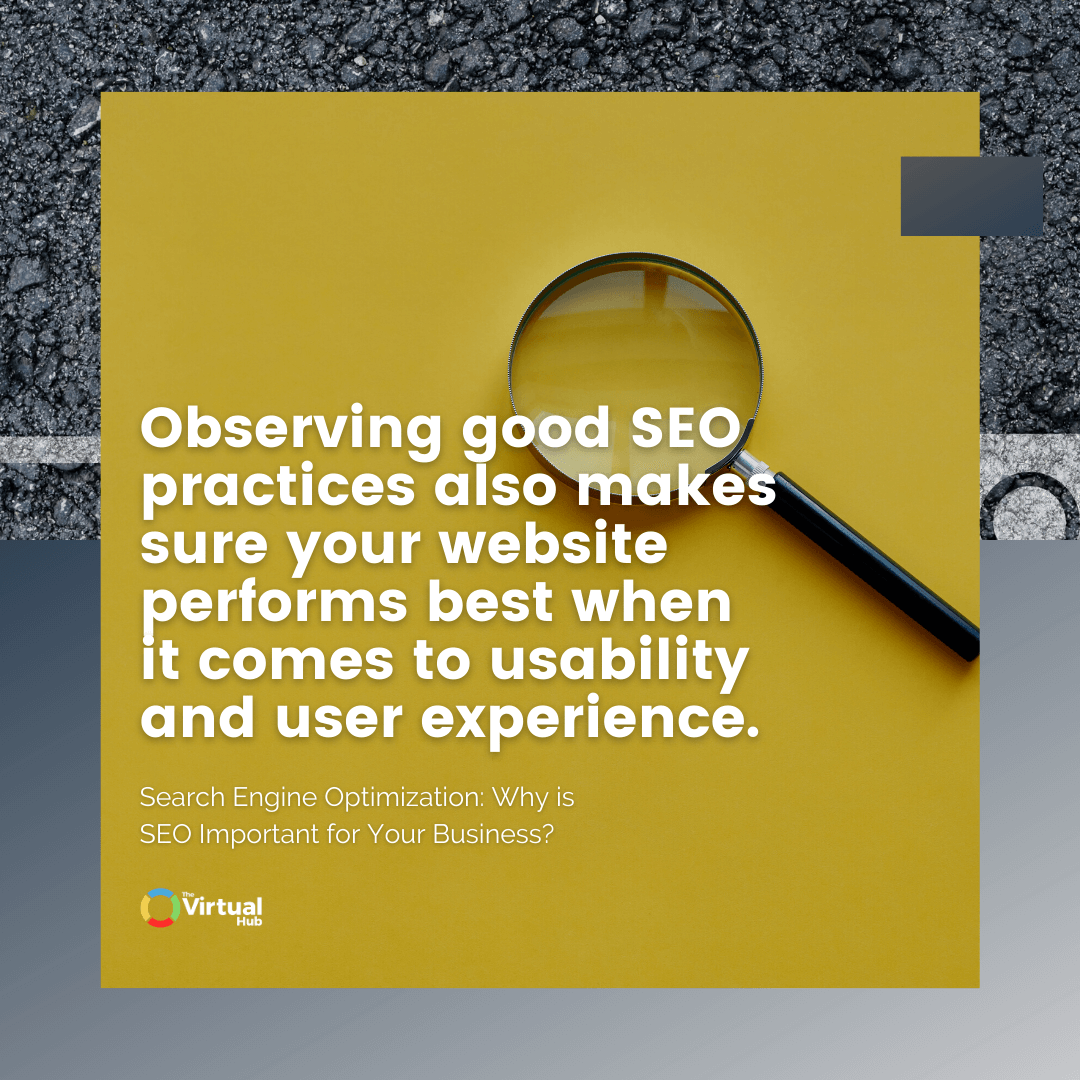
Why Is Search Engine Optimization Important to Your Business?
SEO is important because up to 70% of internet users trust search engines when it comes to their questions and other online needs. This puts businesses in an advantageous position—if you manage to get on the top five search engine results for a search query, the higher the chances are for you to gain a new reader or customer when they click on your website.
As much as SEO helps internet users and visitors, it also has a huge potential for helping out your website or online business. It does this through increasing both the quantity and quality of your website traffic by giving you organic search results. Organic search results are earned through good SEO, as opposed to paid search results, or paid ads/advertising.
SEO also helps you understand what users are looking for. This, in turn, helps you create high-quality content to cater to their needs. Catering to good SEO practices can also bode well for promoting your website on social media channels like Facebook, Twitter, or Instagram.
Using good SEO strategies also makes sure your website performs best when it comes to usability and user experience. SEO can also help put you ahead of your competitors—if your website shows up on the first page, then customers will come to you first.
However, not all SEO techniques are considered to be ethical. For instance, "black hat" SEO tactics, such as keyword stuffing and link farms, are designed to manipulate search engine algorithms rather than provide a better user experience. As a result, they can often do more harm than good.
On the other hand, "white hat" SEO refers to techniques that are in line with the guidelines set forth by the search engines. And as a business owner, you should always strive to use white hat SEO techniques, are they're more likely to lead to long-term success.
"Good SEO is all about connection—it’s following a strict set of guidelines so that you can understand what answers people are looking for, and be able to connect them to solutions that you can offer."
Here are some benefits of SEO for your business:

Visibility
When your website conforms to SEO best practices, it will be ranked higher on a SERP. The higher your rank in search results, the more likely potential customers will be able to see your services.
Traffic
The higher your visibility, the higher your search engine traffic. This means that the number of visitors you get on your webpage increases, which increases the likelihood of increased sales.
Growth
Effective SEO tactics will inevitably lead to the growth of your business or brand. A well-optimized website will organically attract customers, and make sales. Loyal customers are also more likely to share your services on social media channels, leading to even more growth!
Trust
A high SERP ranking also instills trust in the potential customers you gain and credibility in what you offer. Many internet users will often defer to the top suggestions generated by a search engine, which establishes your product or service as high-quality and trustworthy.
User Experience
On your way to achieving a truly optimized website, you'll have to refine everything to be able to cater to your customers. Does it communicate with clarity what services or products you offer? Does it easily provide information visitors may need in order to purchase your product? Can a visitor easily navigate through your site? Keeping the user’s experience in mind not only gets you more customers, but helps you keep your website be the best version of itself.
Pro Tip: Good SEO is all about connection—it’s following a strict set of guidelines so that you can understand what answers people are looking for, and be able to connect them to solutions that you can offer. Having the assistance of an SEO professional will help you understand these guidelines and to create an effective cycle that reinforces itself.
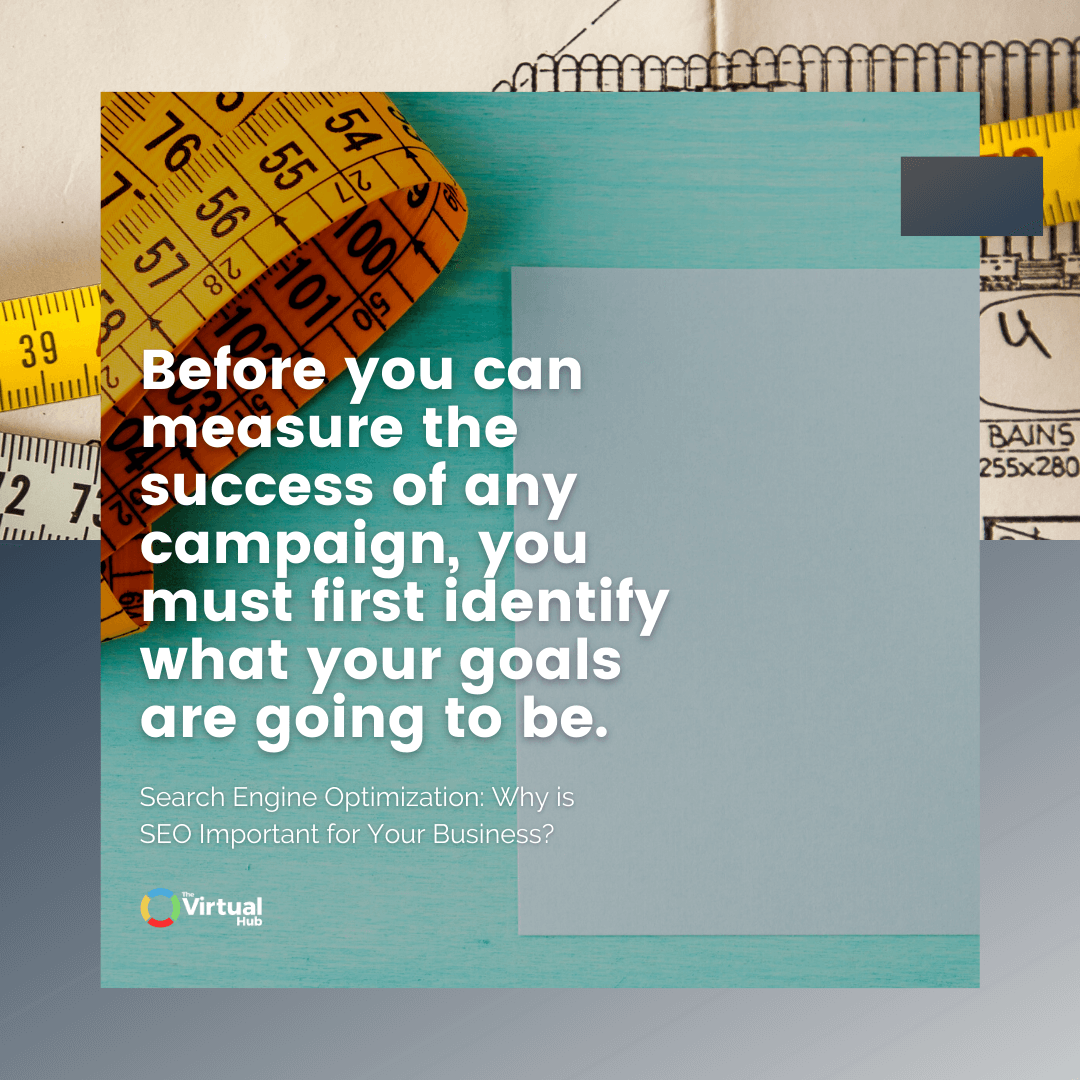
"Keeping the user’s experience in mind not only gets you more customers, but helps you keep your website be the best version of itself."
How Do You Measure the Success of Your SEO Campaign?
SEO can be a lot of fun, but it's also a lot of work! This is where having good SEO data comes in handy.
To gauge how well your SEO efforts are really paying off, you may track things like:
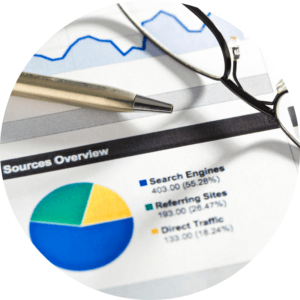
Conversion Rate
This is achieved by dividing the number of conversions by the number of unique visits to your website. A conversion can be anything from a product purchase from your website, to an email sign-up. Knowing your conversion rate can help you measure the return on investment from your online traffic.
Time
Determining how much time your visitors spend on your page can gauge if your SEO strategies are on point. But that doesn’t just mean an extended time spent on your site—sometimes a low time on a page can suit your goals. For example, pages like “contact us” should ideally keep users around for a short time.
RELATED: The Benefits Of Outsourcing: Understanding How It Can Help Your Business
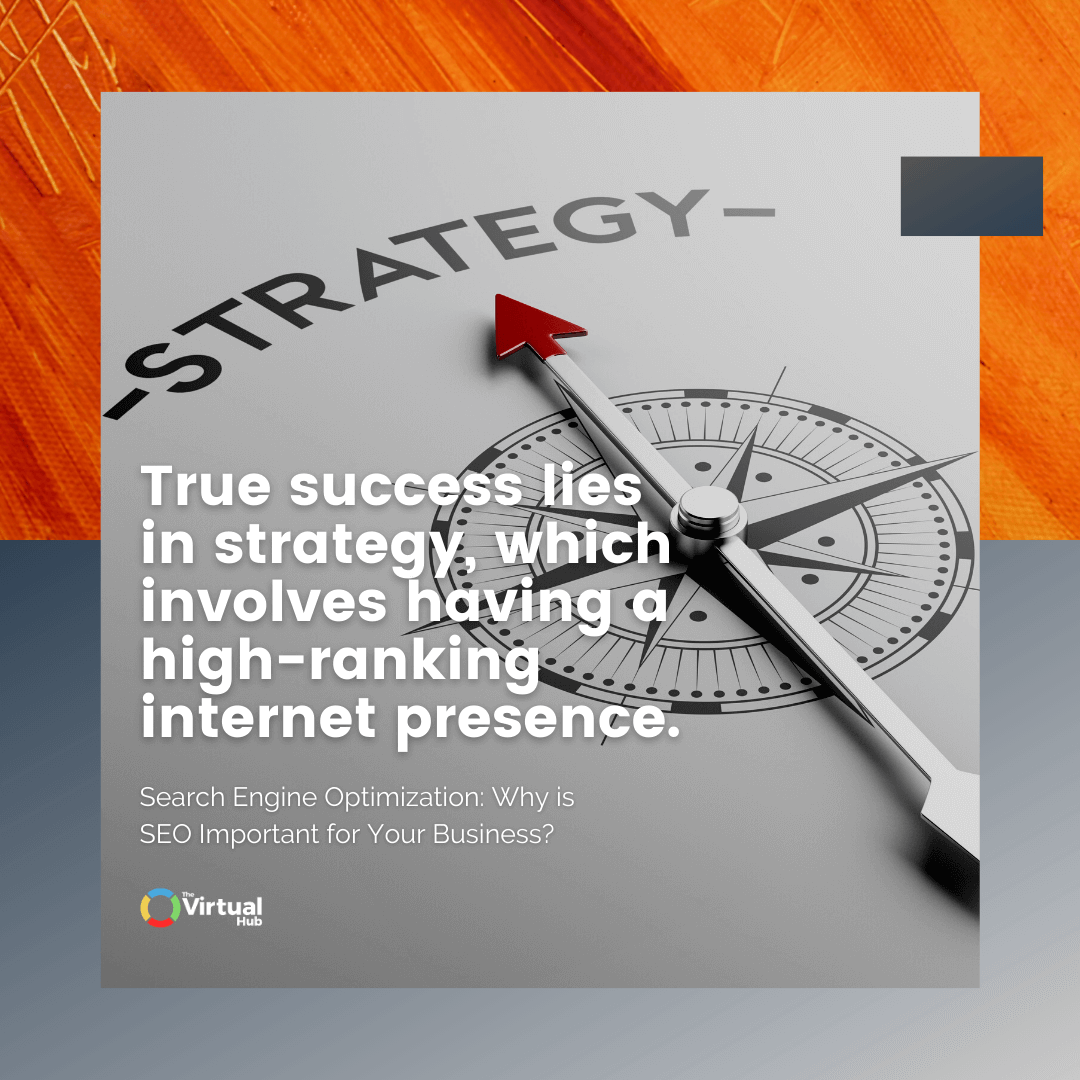
Bounce Rate
“Bouncing” means a visitor came and left without looking through your website. However, many types of websites don’t see this as a quantifiable metric, as sites like restaurants get users that simply visit (and bounce) to learn business hours and addresses.
Search Traffic
You can use Google Analytics to measure the search traffic to your website. It helps you isolate organic traffic, view site traffic over both specified and compared date ranges, as well as how many traffic certain pages receive.
Page per Visit
This measures the number of pages your customers visit when they come to your site. This is helpful for when you need to take visitors through several pages (like in a step-by-step process).
Scroll Depth
This measures how far visitors scroll down individual pages on your website. If your scroll depth turns out to be shallow, try to see if your content can provide certain information higher up on your page, or if your content can stand to lose unnecessary fluff. This metric can be set up in your Google Analytics for easier tracking.
Keyword Rankings
This is a website’s ranking for keywords. It also includes the data featured in SERPs, such as snippets and "People Also Ask" drop down categories you’re aiming for.
Backlinks
Also called incoming links, inbound links, one-way links, these refer to links that loop back to your website. Search engines like Google and Bing look at backlinks as referrals or votes for pages. Websites with several backlinks are likely to have a high rate of organic traffic, as well as rankings.
How Can I Get Started with SEO?

If you're running a website, it's important to make sure that your SEO efforts are up to par. This can be accomplished through a number of methods, including optimizing your website's content and structure, building backlinks, and writing meta descriptions.
Here are the main elements of SEO that you need to familiarize yourself with to get started:
Technical SEO
This encompasses all the behind-the-scenes work that goes into making sure a website is visible and accessible to search engines. This includes optimizing your website's code, structure, and overall architecture. This could also mean ensuring your website always has a secure connection, is optimized for mobile devices, has quick loading times, or a highly responsive and intuitive design—technical assets that search engines prefer.
On-Page SEO or On-Site SEO
This refers to SEO that applies to your website content. By carefully selecting the right keywords and using them throughout your website, you can make sure that your site appears higher in the search results.
However, on-page SEO is about more than just keywords. The layout of your site, the structure of your URLs, and the way you handle images can all impact your ranking.
In addition, your title tags and meta descriptions need to be carefully crafted to encourage click-throughs from the search results.
With so many different on-page SEO elements to consider, it's easy to get overwhelmed. However, by taking things one step at a time, you can ensure that all of your on-page SEO elements are working together to give you the best possible chance of success.
Off-Page SEO or Off-Site SEO
This type of SEO refers to efforts made by websites outside of your own to push up your rankings in the SERPs. It's centered around link building—or the collection of unique backlinks from other reputable websites. Consider this as a sort of friendly referral from other sites, to search engines.
In addition to backlinks, social media signals (likes, shares, etc.) can also impact your ranking. By promoting your content on social media, you can encourage users to link back to your site, which will help improve your ranking.

Local SEO
This kind of SEO practice involves optimizing your site to specific locations or regions. This type of SEO is favored by businesses that have physical locations, such as stores or offices that service specific geographic areas only. Local SEO practices often include claiming business listings, making sure a franchise shows up in a local Google search, and can be particularly focused on social media promotion.
Content Marketing
Content marketing is the process of creating and promoting content that's valuable to your target audience. This could be in the form of blog posts, infographics, or even videos. The goal of content marketing is to attract attention and encourage visitors to your website, where they can then be converted into customers or clients.
Remember, content is the meat within the structure of your website, and is crucial for audience engagement. Make sure your content is easy to read, engaging, and shareable—so you can expand your visibility even further.
Keywords
These used to be one of the only things that mattered, but it remains among the more crucial of SEO techniques to learn and incorporate.
Keywords are simply the words and phrases that people search online. For example, if you're selling shoes, then some of the keywords you might want to target would be "shoes," "women's shoes," "men's shoes," and "children's shoes." These are called "short-tail keywords."
But you shouldn't stop there. You should also target "long-tail keywords." These are longer, more specific phrases that people use when they know exactly what they're looking for. For example, instead of just targeting "shoes," you might also target phrases like "black leather dress shoes" or "running shoes for men."
Long-tail keywords may not get as much traffic as short-tail keywords, but they tend to be much higher quality, which means that they're more likely to result in sales.
Final Thoughts
The success of your business shouldn’t only just rely on a fantastic product or amazing services. True success lies in strategy, which involves having a high-ranking internet presence.
By investing in SEO, you can see a significant return on your marketing efforts. Coming up with a thorough SEO strategy is one of the foremost ways of getting your business to reach its fullest potential.

It's one of the most important aspects of digital marketing, and it should be a priority for any business that wants to succeed in the digital age.
However, it's important to note that SEO is an ongoing process, not a one-time effort. You need to continuously invest in SEO in order to maintain your high rankings. And if you're willing to put in the work, SEO can be a powerful tool for driving more traffic and growing your business.
Up Next:
